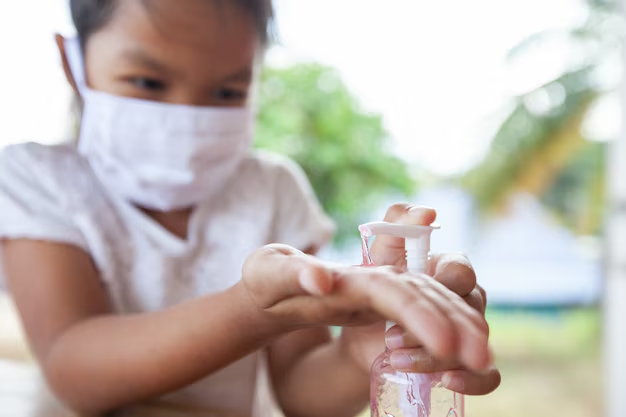Understanding Malaria and Effective Ways to Manage It
Malaria remains one of the world's most formidable health challenges, particularly in tropical and subtropical regions. It presents substantial health risks and challenges in low-resource settings where access to healthcare is limited. So, how do we effectively manage and treat this serious condition? Here’s a comprehensive guide to understanding malaria and the steps involved in addressing it safely.
What is Malaria?
Malaria is a life-threatening disease caused by parasites transmitted to people through the bites of infected female Anopheles mosquitoes. It's crucial to comprehend the basic biology of the disease to appreciate the different treatment strategies.
Origins and Spread
Malaria is primarily found in subtropical and tropical areas, where the environmental conditions favor the breeding of mosquitoes. The World Health Organization (WHO) estimates that nearly half of the global population is at risk of contracting malaria.
Symptoms of Malaria
The symptoms can vary but often include:
- Fever and chills: Sudden chills followed by a fever are common.
- Headaches: Often severe.
- Muscle aches and fatigue: Generalized body pain and malaise.
- Nausea and vomiting: Often accompanies fever and fatigue.
- Anemia: Due to the destruction of red blood cells by the parasite.
Understanding these symptoms allows for faster recognition and response, which is critical in treating malaria effectively.
How is Malaria Diagnosed?
The accurate diagnosis of malaria is critical before commencing treatment. Here's how healthcare providers typically go about diagnosing this disease:
Microscopy
One of the most traditional methods, this involves examining blood samples to see the malaria parasites. Microscopy remains the "gold standard" due to its accuracy and cost-effectiveness in resource-rich settings.
Rapid Diagnostic Tests (RDTs)
In areas where microscopy might not be available, rapid diagnostic tests can be used. These are easy-to-use, quick, and can detect specific antigens derived from malaria parasites.
Treatment Options for Malaria
Once diagnosed, malaria can be treated effectively with a range of antimalarial medications. The choice of treatment differs based on the specific malaria parasite involved, the severity of the disease, and the patient's condition.
Artemisinin-based Combination Therapies (ACTs)
ACTs are the frontline treatment for Plasmodium falciparum malaria, the most dangerous strain. The combination of artemisinin with other drugs ensures that the parasite is effectively cleared from the body.
Chloroquine Phosphate
This was once the most widely used antimalarial but is now effective primarily against Plasmodium vivax malaria due to resistance. Its use is limited in regions where resistance to it has developed.
Other Medications
Apart from these, other drugs such as quinine, mefloquine, and atovaquone-proguanil are also employed based on the resistance patterns and patient tolerance. It's crucial that these medications are used correctly to prevent resistance development.
Managing Malaria: Beyond Medication
Managing malaria isn't solely about medication. Here are additional non-pharmacological strategies to control and prevent malaria:
Vector Control
- Insecticide-treated bed nets: Key in preventing mosquito bites during sleep. They are both affordable and effective.
- Indoor residual spraying (IRS): Applying insecticides inside homes reduces mosquito populations and transmission risk.
Environmental Management
Addressing the breeding grounds by eliminating standing water reduces mosquito populations significantly. Simple actions like covering water storage containers and clearing drains can have substantial effects.
Personal Protection
- Proper clothing: Wearing long sleeves and pants reduces skin exposure.
- Repellents: Using DEET-based repellents can ward off mosquitoes effectively.
Developing Resistance: A Pressing Challenge
Resistance to antimalarial drugs is rising. This stresses the need for judicious use of available treatments and the development of new drugs and strategies to combat evolving malaria strains effectively.
The Role of Vaccination
The introduction of the RTS,S vaccine marks a pivotal moment in malaria control. It's particularly aimed at young children in high-risk regions. While not completely preventive, it's an addition to existing prevention strategies, enhancing overall protection.
Education and Awareness
A major element in dealing with malaria effectively is educational outreach. Informed communities are better equipped to manage prevention and ensure timely treatment. Education can close gaps in care and prevention, ensuring better health outcomes.
Future Outlook
While progress has been made, the battle against malaria is ongoing. The development of new technologies, drugs, and vaccines continues to hold promise for effective management and eventual eradication of the disease. Collaborative efforts across borders, sectors, and communities are crucial as we move forward.
To remain vigilant against malaria, it's necessary to combine medical treatments with proactive prevention and community education. Each element strengthens our global defense, paving the way toward a malaria-free future.
Quick Summary: Malaria Management and Treatment Essentials
- ✅ Know the Signs: Recognize symptoms like fever, headaches, and fatigue.
- 🔍 Diagnosis Matters: Utilize microscopy or RDTs for accurate diagnosis.
- 💊 Effective Treatment: Use ACTs for P. falciparum malaria; consider local resistances.
- 🦟 Prevention is Key: Use treated nets, repellents, and indoor spraying.
- ⚠️ Beware of Resistance: Use medications judiciously to avoid resistance.
- 💉 Vaccination Role: Stay informed about vaccine options such as RTS,S.
- 📚 Educate & Empower: Advocate for community awareness to bolster prevention and treatment.
By focusing on the right combination of strategies, you can effectively manage and prevent this age-old disease, safeguarding health and well-being for future generations.

